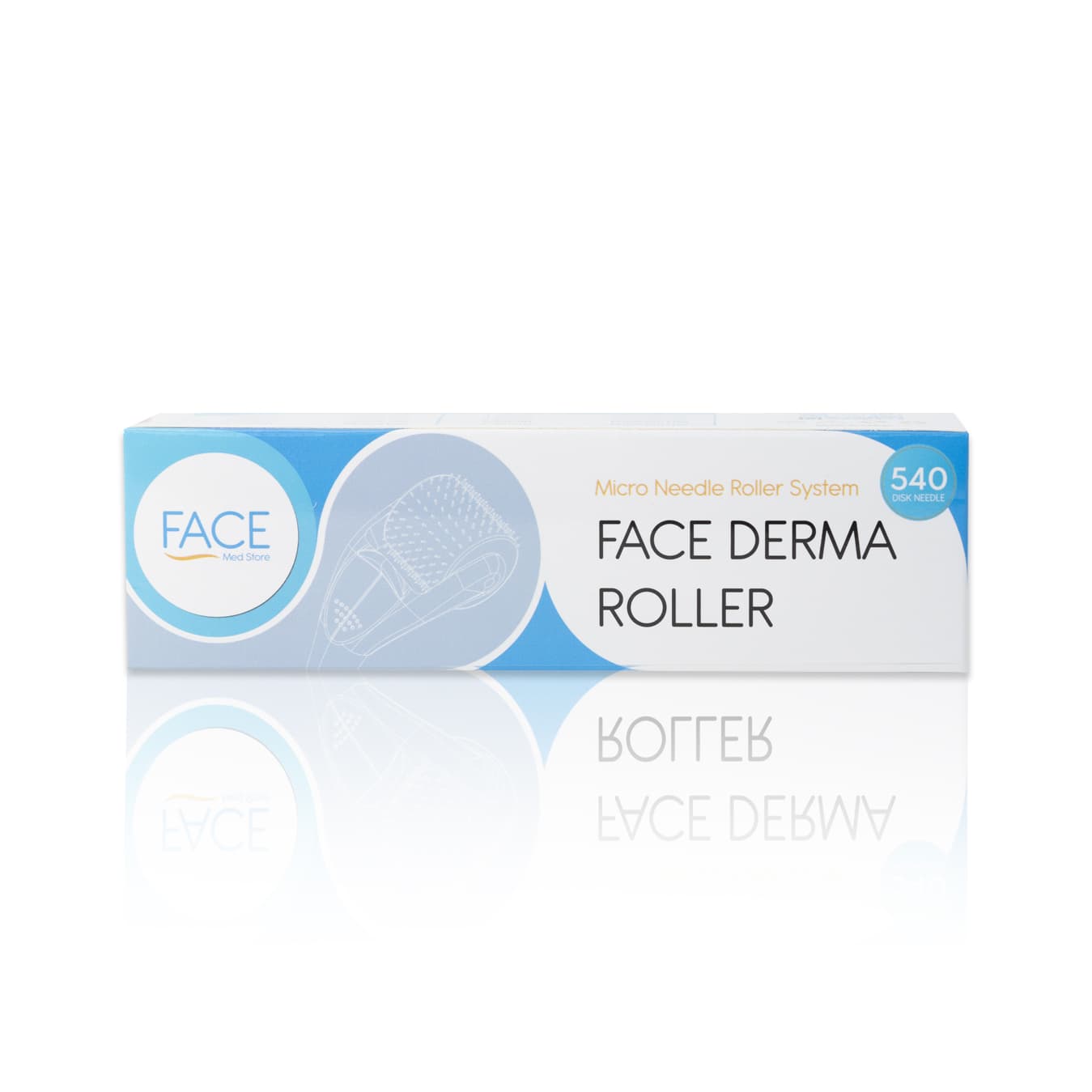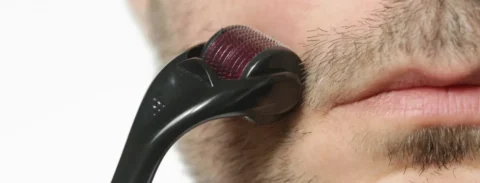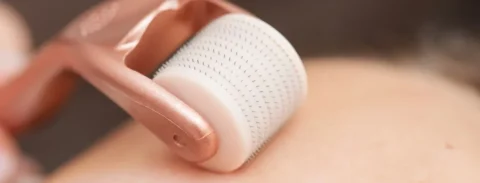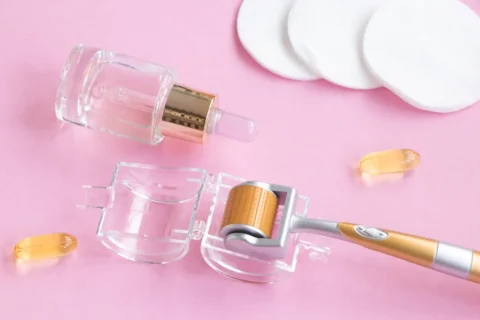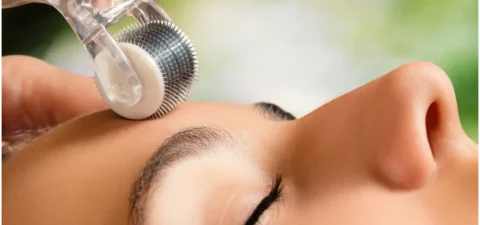If you’re considering trying derma rolling to improve your skin’s texture and appearance, you may be wondering – is it safe to use a derma roller if I have broken capillaries on my face? This is always an important question to ask.
According to our experience at Face Med Store, derma rolling does pose risks of damaging existing broken capillaries or causing new ones if not used carefully. Let’s look at the risks, precautions, proper techniques, and aftercare to take if you want to try derma rolling safely with broken capillaries present.
What are the risks of using a derma roller on the face with broken capillaries?
Using a derma roller on skin with broken capillaries has risks of worsening their appearance. The micro-injuries caused by the needles can worsen already injured capillaries and damage healthy blood vessels if proper precautions aren’t taken.
There is increased potential for bleeding, bruising, infection, and inflammation which may make broken capillaries look more visible. Minimize risks by prioritizing proper technique, needle size, pressure, and aftercare strategies.
One systematic review done in 2021 examined the complications that may arise from microneedling procedures, including the risk of hypersensitivity reactions, infection, erythema, and edema. This demonstrates the potential for derma rolling to cause adverse effects if not done properly.
Can derma rolling harm broken capillaries on the face?
Yes, derma rolling does pose a risk of harming broken capillaries on the face. The tiny wounds caused by the needles inherently involve some vascular damage to the skin. If an inappropriate needle length is used or too much pressure is applied, the needles can further traumatize delicate capillaries under the skin’s surface.
The inflammation triggered by derma rolling makes broken blood vessels appear more noticeable as well. Care must be taken to avoid aggravating existing capillaries during treatment.
Another study found that microneedling can cause minimal to no bleeding since only capillaries are punctured, but it can still result in mild trauma to the skin, leading to a mild inflammatory response. This shows it can damage capillaries.
Can derma rolling lead to more broken capillaries on the face?
It’s possible for derma rolling to cause more broken capillaries on the face, yes. If too much pressure is applied during treatment, the needles can rupture blood vessels leading to new broken capillaries. Inadequate aftercare and sun exposure after treatment also heightens inflammation, which puts capillaries at risk.
Even capillaries that are weakened are more prone to damage. However, with proper technique the risk is low. Factors like genetic predisposition and underlying skin conditions can also increase susceptibility to more broken capillaries overall.
The above-mentioned systematic review also found that microneedling can cause ecchymosis (bruising) and spotty bleeding due to the needles puncturing the skin.
Is it safe to use a derma roller if I have broken capillaries on my face?
Given the risks, derma rolling over existing broken facial capillaries is generally not recommended. If you already have visible broken capillaries, Face Med Store suggests it’s best to consult a dermatologist before attempting to use a derma roller at home.
They can advise if microneedling is appropriate for your skin and the best approach. If derma rolling is pursued, extreme care and caution must be taken to avoid potential damage and complications.
How to treat broken capillaries before using a derma roller?
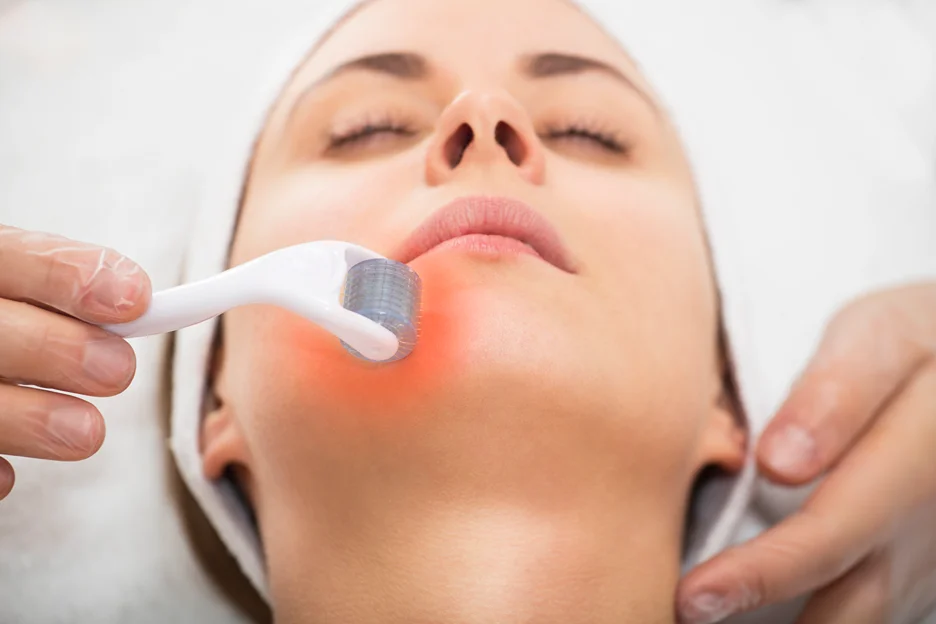
If your goal is to eventually use a derma roller safely, Face Med Store advises treating broken capillaries first. Professional vascular laser or IPL treatments performed by a dermatologist can reduce the appearance. Vitamin K applied topically may help strengthen blood vessels over time as well.
Our recommendations are science-backed as proven by the following studies:
- One randomized controlled trial found that topical Vitamin K application improved wound healing compared to a control group.
- Another study found that laser surgery can successfully treat all forms of telangiectasias (broken capillaries).
Allowing time for broken capillaries to heal before derma rolling avoids aggravating them. Stick to a gentle skincare routine without actives that could thin the skin and always wear sunscreen to protect vulnerable capillaries.
Is there a way to use a derma roller safely with facial broken capillaries?
While derma rolling with broken capillaries poses risks, a very cautious approach may make it possible.
- Use a 0.2-0.5mm needle size to avoid excess penetration into the dermis layer where the capillaries are. Roll gently over the skin without pressing too hard.
- Avoid rolling directly over obvious broken capillaries as well.
- Follow each session with soothing, healing products containing hyaluronic acid and calming botanicals.
- Monitor your skin closely and stop at the first sign of irritation or increased redness. Taking a conservative approach under professional guidance gives the best chance of staying safe.
Consult an Expert Before Attempting Derma Rolling With Broken Capillaries

Yes, derma rolling does pose risks when broken capillaries are present on the face. While it’s possible to attempt carefully at home under a dermatologist’s supervision, getting the treatment performed professionally is ideal for minimizing potential complications.
As your trusted source for top dermatological supplies, Face Med Store recommends consulting an expert before pursuing microneedling with broken capillaries. We offer derma rollers plus hyaluronic acid serums to nourish skin after treatment. Contact us today to improve your practice’s profitability and help clients successfully rejuvenate their skin.
